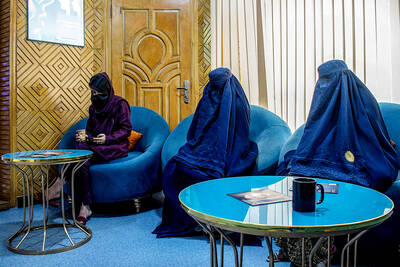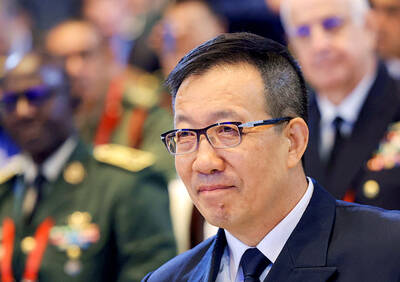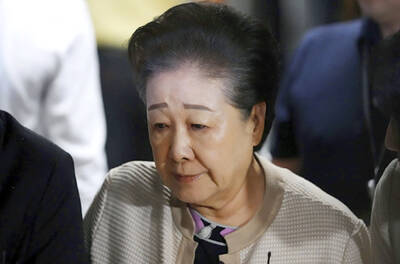After 18 years of almost daily lectures about surviving the atomic bomb dropped here on Aug. 6, 1945, Setsuko Iwamoto's stories to classrooms full of students have a finely limned quality about them, as smooth as pebbles in a creek.
There is no straining for melodrama as the 71-year-old woman recounts how her skin seemed to melt, and pour off of her arms after the flash, or how whatever scraps of cloth people could find were used by people to protect themselves from the black rain that fell afterward.
Stories of survival do not get much more compelling. But Iwamoto worries now, with Japan inching toward rearmament, that the spirit of Hiroshima and the moral power of her story are fading.
Each year, she said, the stares of the students she faces from the podium grow blanker, just as their questions about the atomic bombing grow more stilted, appearing rehearsed rather than heartfelt.
"Just a few years ago, most school teachers had direct memories of the war," said Iwamoto, who said she was diagnosed with cancer last year, but appeared hale. "That's not the case at all anymore, though, and I wonder once this kind of lecture ends, how effectively the experience of war is taught.
"In my day, we had trouble just surviving every day, whereas these days, everyone in Japan is comfortable," Iwamoto added. "Children learn about war through manga (comic book characters) and think it is kind of cool. They have no particular sensation of Japan's defeat."
The profound shock of the Hiroshima bombing, and that of Nagasaki three days later, is widely credited not only with ending World War II, but with creating a strong emotional underpinning to Japan's official creed of non-violence, consecrated in an American-drafted constitution that faces increasingly strident calls for reform.
Fears about Japan becoming increasingly blase about remembering the atomic bombings, though, are not limited to survivors of the blasts, or hibakusha, as they are known here.
Hiroshima's entire image and economy are linked to the horrendous final days of World War II, and city officials say that visits by Japanese travelers here are locked in a serious, long-term decline, broken only by a modest spike since the Sept. 11 terrorist attacks in the US.
Commissions have been formed to reverse the trend. A museum on the grounds of the Peace Park, near ground zero, has been expanded and modernized. In the hope of popularizing visits here, even a manga has been created -- to celebrate the memory of Sadako Sasaki, a 12-year-old who died of blood cancer years after the bombing.
"We are faced with the challenge of conveying this experience to the next generations," said Noriyuki Masuda, associate director of the Hiroshima Peace Memorial Association. "At some point, we realized that what we had was a crisis involving young people's consciousness. We have been facing a change in attitudes, and a decline of interest in Japan as a nation."
When Iwamoto completed her one-hour presentation to a lecture hall full of sixth graders who had come to Hiroshima on a field trip, five minutes were left for what was billed as a question and answer session.
In lieu of a question, a young girl who appeared to have been chosen for her excellence in study walked nervously to the microphone and read a brief speech in the name of her class. "Why must there be war?" she said flatly, ending her comments with a wish for the lecturer's good health.
Asked if visits at a slightly older age might favor deeper thought, not to mention real questions, the girl's teacher, Keiko Tokunaga, demurred.
"This is the age when children are just beginning to think about the world, and I think that it is the best time to introduce ideas like this," she said. "But this is just a start."

Decked out with fake crystal chandeliers and velvet sofas, cosmetic surgery clinics in Afghanistan’s capital are a world away from the austerity of Taliban rule, where Botox, lip filler and hair transplants reign. Despite the Taliban authorities’ strict theocratic rule, and prevailing conservatism and poverty in Afghanistan, the 20 or so clinics in Kabul have flourished since the end of decades of war in the country. Foreign doctors, especially from Turkey, travel to Kabul to train Afghans, who equally undertake internships in Istanbul, while equipment is imported from Asia or Europe. In the waiting rooms, the clientele is often well-off and includes men

BEIJING FORUM: ‘So-called freedom of navigation advocated by certain countries outside the region challenges the norms of international relations,’ the minister said Chinese Minister of National Defense Dong Jun (董軍) yesterday denounced “hegemonic logic and acts of bullying” during remarks at a Beijing forum that were full of thinly veiled references to the US. Organizers said that about 1,800 representatives from 100 countries, including political, military and academic leaders, were in Beijing for the Xiangshan Forum. The three-day event comes as China presents itself as a mediator of fraught global issues including the wars in Ukraine and Gaza. Addressing attendees at the opening ceremony, Dong warned of “new threats and challenges” now facing world peace. “While the themes of the times — peace and development —

COMFORT WOMEN CLASH: Japan has strongly rejected South Korean court rulings ordering the government to provide reparations to Korean victims of sexual slavery The Japanese government yesterday defended its stance on wartime sexual slavery and described South Korean court rulings ordering Japanese compensation as violations of international law, after UN investigators criticized Tokyo for failing to ensure truth-finding and reparations for the victims. In its own response to UN human rights rapporteurs, South Korea called on Japan to “squarely face up to our painful history” and cited how Tokyo’s refusal to comply with court orders have denied the victims payment. The statements underscored how the two Asian US allies still hold key differences on the issue, even as they pause their on-and-off disputes over historical

BRIBERY ALLEGATIONS: A prosecutor said they considered the risk of Hak-ja Han tampering with evidence to be very high, which led them to seek the warrant South Korean prosecutors yesterday requested an arrest warrant for the leader of the Unification Church, Hak-ja Han, on allegations of bribery linked to the country’s former first lady and incitement to destroy evidence. The move came a day after the 82-year-old was questioned over her alleged role in bribing former first lady Kim Keon-hee and a lawmaker. Founded in 1954 by her late husband, Sun Myung Moon, the Unification Church has long been the subject of controversy and criticism, with its teachings centered on Moon’s role as the “second coming” and its mass weddings. Followers are derisively referred to as “Moonies.” However, the church’s